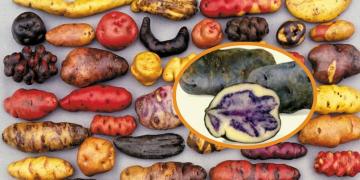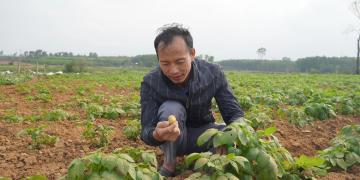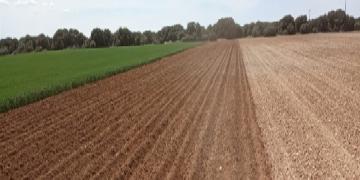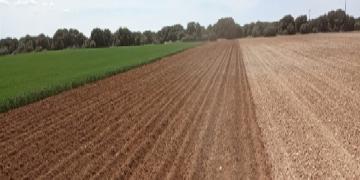EEUU: New study unveils impact of seedborne PVY infection on potato yield in large-scale trials
The transition from PVYO to PVYNTN and PVYN-Wi underscores the dynamic nature of PVY and the need for adaptive management strategies.
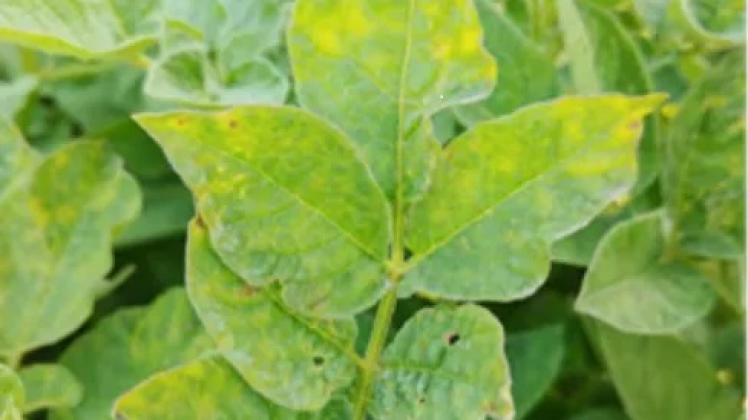
Researchers at the University of Idaho have conducted a detailed investigation into the effects of seedborne Potato Virus Y (PVY) infections on yield and quality in potatoes, using large-scale field trials. This study, led by Nathan Gelles, Rabecka Hendricks, and Dr. Nora Olsen, is featured on pages 14 and 15 of the 2024 Potato Virus Initiative newsletter and sheds light on the complexity of PVY and its evolving impact.
Shifting Strains of PVY in the Pacific NorthwestThe study highlights the evolving nature of PVY strains and their varied effects on potato crops. Historically, research has focused on the PVYO strain, which was once predominant in commercial fields and known for causing significant yield losses and quality defects. However, in recent years, PVY strains have shifted in the Pacific Northwest to recombinant strains such as PVYNTN and PVYN-Wi.
These recombinant strains often produce milder symptoms compared to PVYO. Depending on the potato cultivar and the specific strain, seedborne PVY infections can cause a wide range of symptoms, including yield reductions and tuber quality issues. The study emphasizes that this variability poses a challenge for growers and researchers alike.
Importance of Monitoring and AdaptationThe transition from PVYO to PVYNTN and PVYN-Wi underscores the dynamic nature of PVY and the need for adaptive management strategies. These newer strains, while sometimes less visually impactful in the field, still carry the potential for significant economic losses. Symptoms can be subtle or even asymptomatic in some cultivars, making detection and management more difficult.
The researchers stress the importance of understanding how different strains interact with specific cultivars. This knowledge is crucial for tailoring management practices to minimize the impact of PVY on yield and quality.
Broad Implications for Potato ProductionSeedborne PVY infections continue to represent a serious threat to potato production, not only in the Pacific Northwest but globally. As strains shift and new recombinant variants emerge, growers must remain vigilant in their monitoring and management efforts. The findings of this study provide critical insights that can help inform best practices, from selecting resistant cultivars to improving seed certification processes.
This research adds to the growing body of evidence that PVY management must evolve alongside the virus itself. Tools such as enhanced diagnostic methods, field inspections, and targeted pest control to manage aphid vectors will play an essential role in combating PVY.
About the Research TeamThe study was conducted by a collaborative team at the University of Idaho:
- Nathan Gelles, graduate student, led the field trial data collection and analysis.
- Rabecka Hendricks, research associate, contributed expertise in trial implementation and management.
- Dr. Nora Olsen, a renowned specialist in potato storage and quality, provided oversight and interpretation of the study results.
Their work underscores the importance of continued research into PVY’s evolving dynamics and its impact on potato crops.
Moving ForwardThe study reinforces the need for growers, researchers, and industry stakeholders to remain proactive in addressing the challenges posed by PVY. With the emergence of new recombinant strains and their varied effects on potato production, collaboration and innovation will be critical in developing effective solutions.
Growers are encouraged to review the full findings in the 2024 Potato Virus Initiative newsletter, available on the University of Idaho’s website here for more detailed insights and recommendations.
Fuente: potatonewstoday.com/2024/11/25/new-

